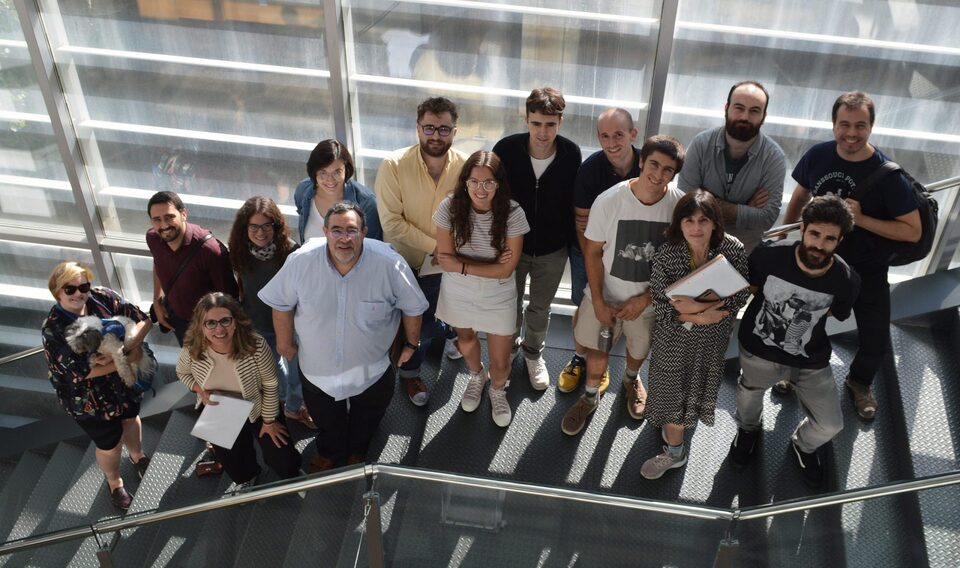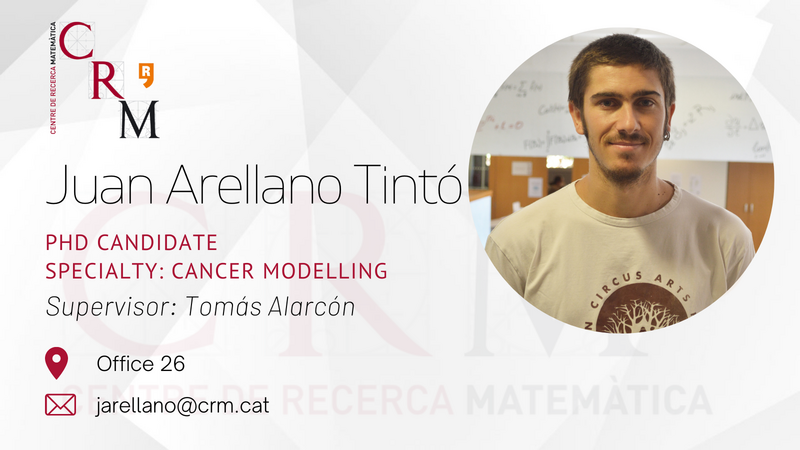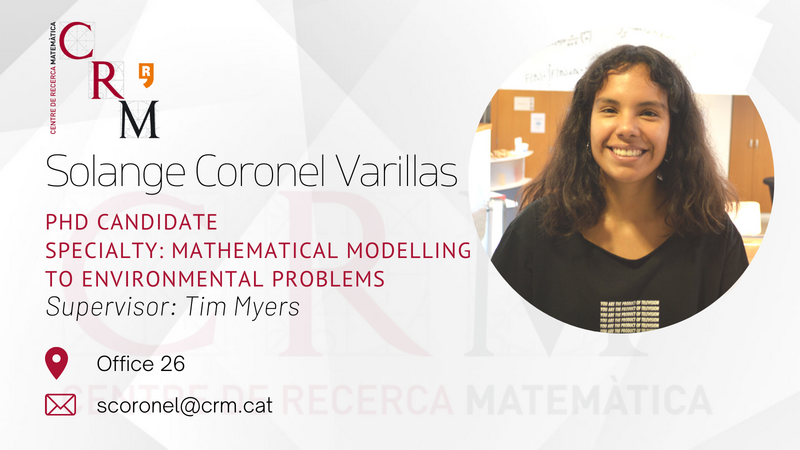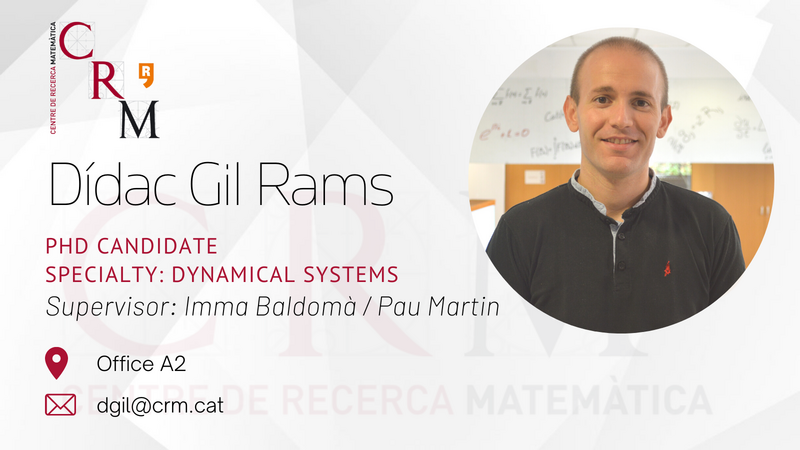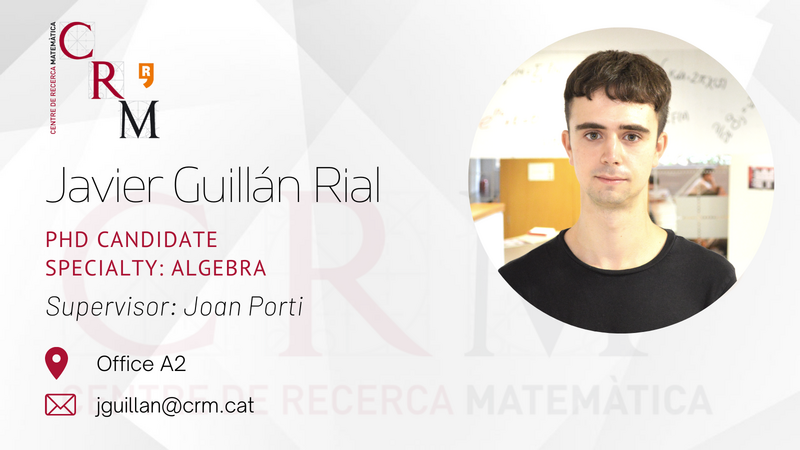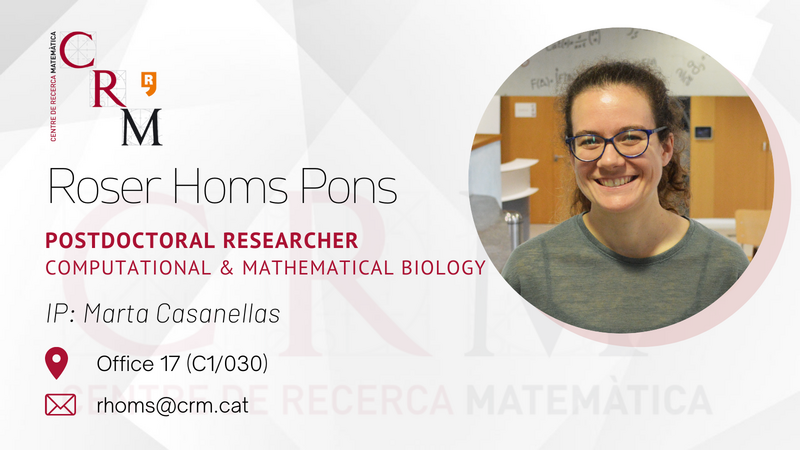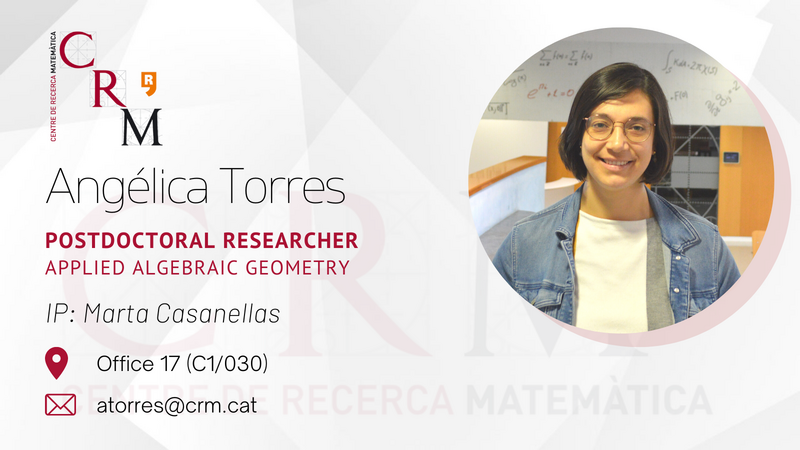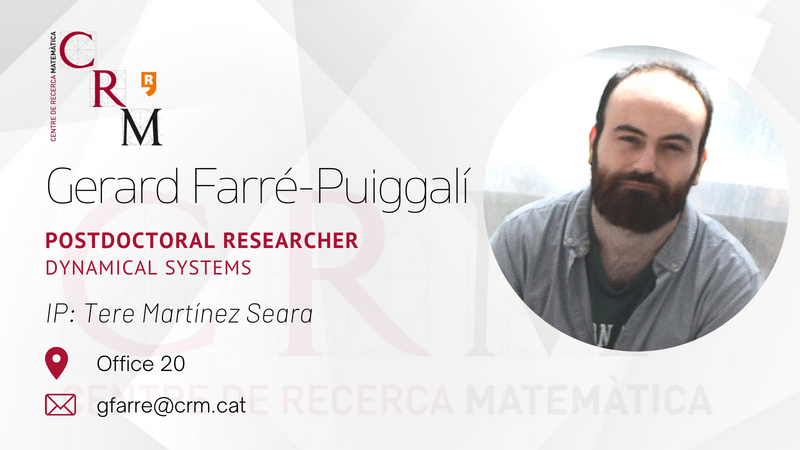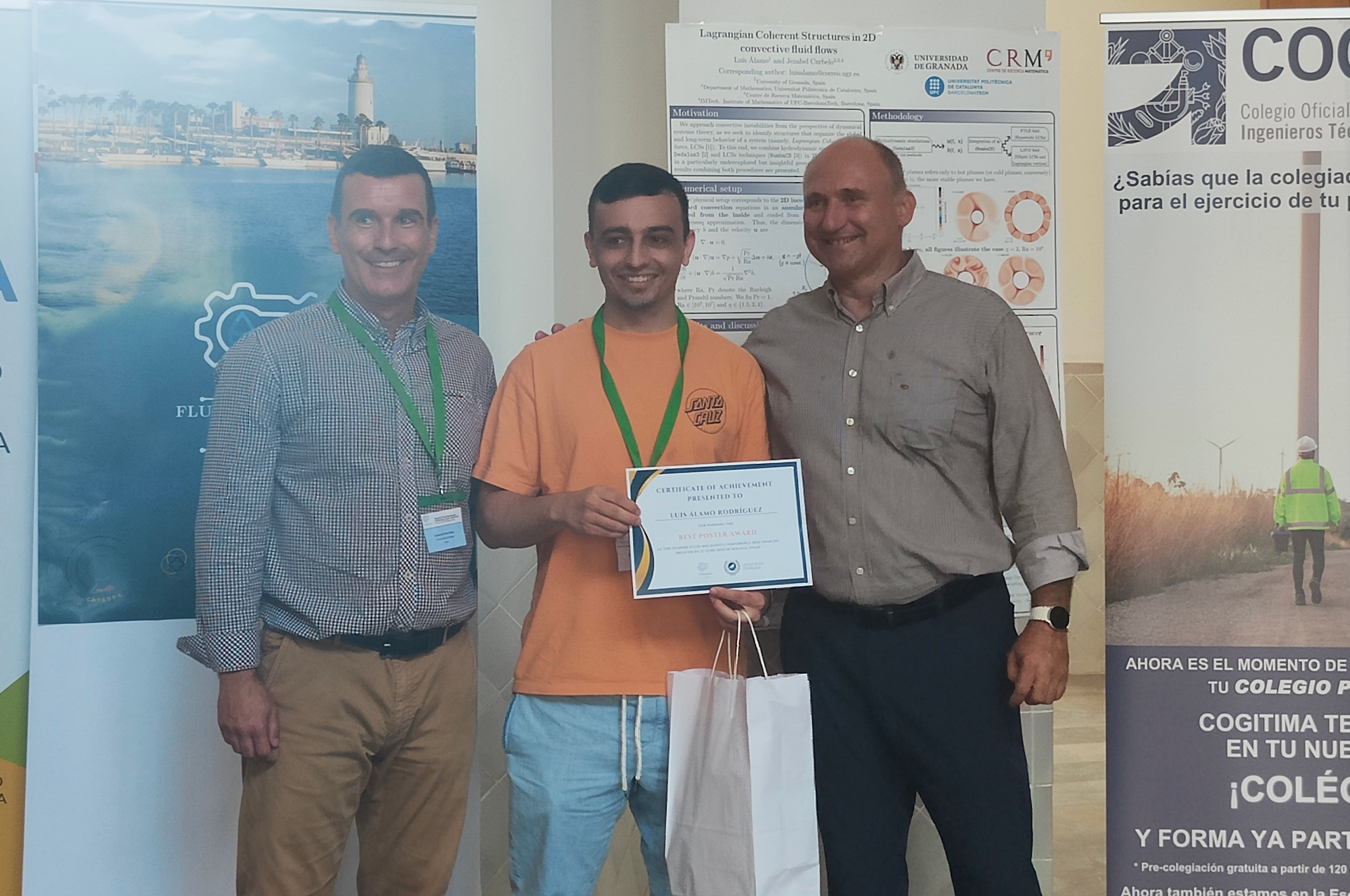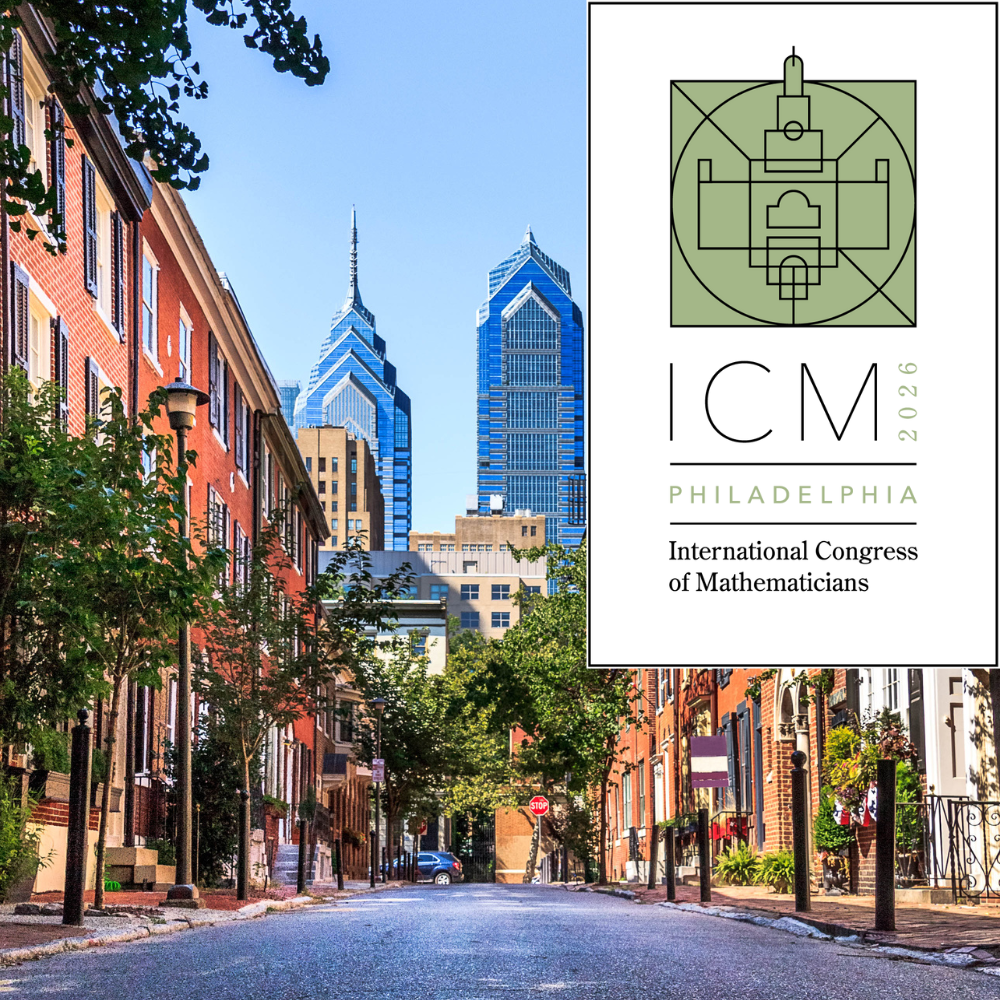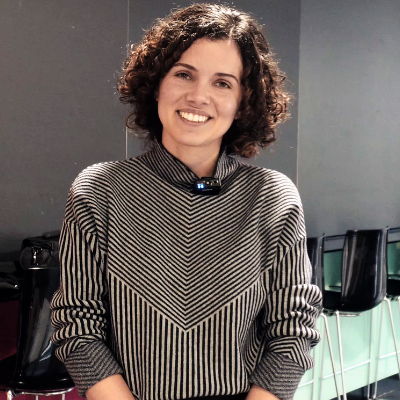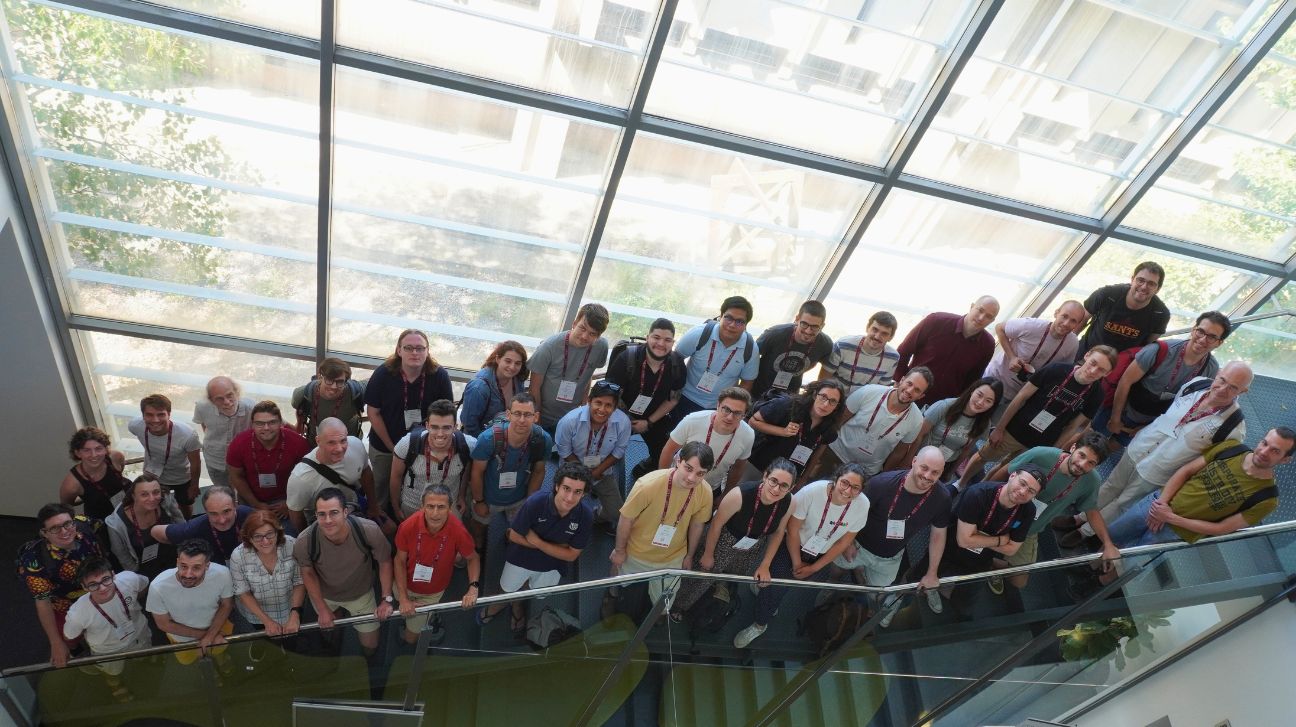The start of this 2022/2023 academic year has been quite exciting at the Centre de Recerca Matemàtica, with the arrival of ten researchers to join various groups at the centre to continue (or start) their scientific careers. We want to give them a warm welcome into the CRM community, wishing them an enriching experience during their time with us.
Of the ten researchers, five are PhD students and five are postdoctoral researchers, working on such diverse fields of mathematics like dynamical systems, algebra, computational neuroscience, mathematical modelling, and geometry. We are specially thrilled by the fact that the selection processes conducted for these positions have helped achieve gender balance in this new batch of talented researchers.
A big part of these new arrivals is made possible thanks to the funding awarded by the Spanish State Research Agency (AEI), as part of the The María de Maeztu Excellence Accreditation that recognizes and provides funding to research organizations that demonstrate scientific impact and leadership at international level, and that actively collaborate with their local social and business environments.
A calling to serve the mathematical community
The CRM was founded in 1984 to foster advanced research and training in mathematics through cooperation and synergies with universities and other research organisations, with the goal of becoming an internationally recognised scientific institution.
The centre’s activity has two very distinct aspects: on the one hand, it is an organiser of competitive activities in the international sphere (intensive research programmes, advances courses, congresses) and a host centre for long-term visiting researchers collaborating with the Catalan research community; on the other hand, since 2008, the CRM has had its own research groups, which has allowed it to open new lines of research in emerging areas of application.
Every new arrival helps the CRM strengthen and expand its place within the national and international mathematics landscape. Below, you can meet the new faces at CRM. Welcome to the CRM!
Subscribe for more CRM News
I studied Physics for my Bachelor in “Universidad Complutense de Madrid”. In 2019 I joined a Master in Physics and Mathematics in Granada, where I have especialized in Mathematical Modelling in Biology. I did my master dissertation with Juan Soler (Granada) and Juan Calvo (Granada) about modelling tumour dynamics. In 2021 I started to work with Oscar Sanchez (Granada), Juan Campos (Granada) and Juan Calvo in non-linear diffusion equations, mainly focused in the classical Porous Medium Equation and some flux-limited variants.
In September of 2022 I started working in CRM, in mathematical modelling of tumor growths supervised by Tomás Alarcón and Daria Stepanova.
After I finished high school, I decided to study Mathematics at Universitat de Barcelona. In 2019, I started the Master in Advanced Mathematics and Mathematical Engineering (MAMME) from Universitat Politènica de Barcelona, finishing with my thesis with the help from Barcelona Super Computer, about ‘An introduction to parallel in time discretization of transport equations’. This master took me 2 years, since I took a job as well in a consultancy, working on data analysis, business intelligence.
During autumn from 2021, I met Tim Myers and he showed me his research about modelling of carbon capture. I will be working on mathematical modelling to environmental problems, as in relation to contaminant removal with him as my supervisor.
I studied mathematics at the Universitat Autònoma de Barcelona, majoring in fundamental mathematics in 2019. In 2020/2021 I studied the Master in Advanced Mathematics and Mathematical Engineering at the Universitat Politècnica de Catalunya. During the course I obtained a Santander-UPC research initiation grant (INIREC) supervised by my current thesis supervisors Inmaculada Baldomà and Pau Martín. In the 2021/2022 academic year, I started the PhD in dynamic systems within the Applied Mathematics program at the UPC, with the aforementioned thesis supervisors. Since then, we have been studying the exponentially small splitting of semi-standard map separatrixes.
Lucía studied biomedical engineering at the Universidad Politécnica de Madrid, which included a year abroad as an Erasmus student at the Technische Universität Graz, in Austria, and in 2020 she obtained her master’s degree on biomedical engineering from the Imperial College of London. She will be working with Klaus Wimmer from the Computational Neuroscience group at CRM.
Javier studied mathematics at the Universidade de Santiago de Compostela, and obtained a Master’s degree in Advanced Mathematics at the Unviersitat Politècnica de Catalunya in 2022. He will be working with Joan Porti from the UAB Mathematics Department.
I am a Beatriu de Pinós postdoctoral fellow at Centre de Recerca Matemàtica in the group of Marta Casanellas using algebraic methods to address questions in Phylogenetics. Previously I was a postdoc at the Mathematical Statistics group led by Mathias Drton at TU München and at Max-Planck-Institut in Leipzig in the Nonlinear Algebra research group of Bernd Sturmfels. Before that, I spent some months at TU Berlin in the framework of the Thematic Einstein Semester on Algebraic Geometry. I obtained my PhD in 2019 at Universitat de Barcelona on approximating local rings by Gorenstein rings under the supervision of Joan Elias.
My main research interests lie in the realm of Algebraic Statistics and its applications to Life Sciences, using tools from Commutative Algebra, Algebraic Geometry and Computational Algebra.
Marc Jorba-Cuscó completed his PhD (University of Barcelona) in 2019. His areas of interests are both theoretical and applied dynamical systems (e.g. Strange Non-chaotic Attractors, Celestial Mechanics, high-energy physics and mathematical biology). Marc joints the CRM to work under Lluís Alsedà.
I am a postdoctoral researcher in the Mathematical Biology group working on Phylogenetics under the supervision of Marta Casanellas. Previously I was a postdoctoral researcher at the School of Engineering Sciences of KTH Royal Institute of Technology in Stockholm where I worked with Kathlén Kohn. I finished my PhD at the University of Copenhagen in the MBIO group lead by Elisenda Feliu. My research lies in the field of Applied Algebraic Geometry, and I am interested in the use of algebraic and geometric tools to understand problems in other areas. I have projects in Chemical Reaction Networks, Computer vision, and now Phylogenetics!
I am currently a junior postdoctoral fellow in the group of Dynamical Systems at CRM under the program funded by the Maria de Maetzu Excellence Award. I recently moved back to my hometown Barcelona from Stockholm in order to pursue my research in the field of dynamical systems, more specifically in the in/stability theory in Hamiltonian dynamics and Arnold diffusion at UPC, funded by an ICREA grant and under the supervision of Tere M-Seara. Before that I did my PhD at the Royal Institute of Technology (KTH) under the supervision of Maria Saprykina, also in the field of Dynamical systems and instability of invariant objects in Hamiltonian dynamics and ergodic theory. Before my PhD I studied the master program “Advanced mathematics and mathematical engineering” at UPC and the bachelor’s degree in Mathematics at University of Barcelona.
Lucy graduated with a 1st class MMath degree from Oriel College in 2014. She went on to complete her PhD in Civil Engineering also at Oriel college in May 2019. Her thesis, entitled ‘Large Fluid-Driven Deformations of Porous Annuli: Solutions Via Chebyshev Spectral Collocation’, comprises mathematical modelling of porous solids deforming due to fluid-flow and solutions via both analytical and numerical methods. Prior to her arrival at CRM she was a post doctoral research assistant in both the Mathematical Institute and Engineering Science at University of Oxford. Lucy will be working with Tim Myers from the Industrial Mathematics group at CRM.

CRM Comm Team
Anna Drou | Pau Varela
CRMComm@crm.cat
Niclas Rieger defends his PhD thesis on data-driven climate analysis and marine pollution
Niclas Rieger defended his PhD thesis at the Institut de Ciències del Mar, culminating a research journey focused on extracting insights from both massive climate datasets and scarce environmental observations. Developed within the European CAFE...
A Day of Higher Structures in Symplectic and Poisson Geometry, with Summer Tapas at UPC Barcelona
The event "A Summer Tapas Invitation to Higher Structures in Symplectic and Poisson Geometry I", held on July 7, 2025, at EPSEB–UPC, featured talks by Alejandro Cabrera, Chenchang Zhu, Miquel Cueca, and Mario Garcia-Fernandez, offering a rich and informal exploration...
Luís Álamo, premi al millor pòster a la SFMC 2025 per un treball dirigit per Jezabel Curbelo
Luís Álamo, estudiant del màster FISYMAT de la Universitat de Granada, ha guanyat el premi al millor pòster a la conferència 3rd Spanish Fluid Mechanics Conference (SFMC25) amb un treball sobre estructures coherents Lagrangianes, basat en el seu...
Three CRM Researchers Invited to Speak at the 2026 International Congress of Mathematicians
From left to right: Xavier Cabré, Joaquim Ortega (photo by Xènia Fuentes, UB), and Xavier Tolsa. Three researchers affiliated with the Centre de Recerca Matemàtica (CRM), Xavier Cabré, Joaquim Ortega-Cerdà and Xavier Tolsa, have been invited to...
Gissell Estrada, beca Leonardo 2025 per explorar la migració col·lectiva amb matemàtiques i robots
L’investigadora Gissell Estrada Rodríguez, professora a la UPC i adscrita al CRM, ha rebut una Beca Leonardo 2025 per desenvolupar un projecte que combina matemàtiques i robòtica per estudiar la migració col·lectiva en sistemes vius i artificials....
JISD 2025 – Where Dynamical Systems Meet PDEs
JISD 2025, held at the Centre de Recerca Matemàtica (CRM) from June 30 to July 4, 2025, featured four advanced minicourses delivered by Dmitry Dolgopyat (on averaging and Fermi acceleration in dynamical systems), Serena Dipierro (on the theory of nonlocal minimal...

